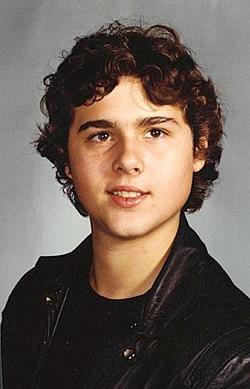David Reimer
David Reimer (1965–2004) was a Canadian man born biologically male, but was raised as a female after a botched circumcision in infancy. His case is widely cited in psychology, medical ethics, and gender studies as an example of the complexity of gender identity and the influence of nature versus nurture in gender development. Reimer's experience challenged the then-prevailing beliefs about gender being solely a social construct and has had a lasting impact on medical practices and ethics, particularly concerning intersex and transgender individuals.
Early Life and the Experiment[edit | edit source]
David Reimer was born in Winnipeg, Manitoba, as Bruce Reimer, one of identical twins. The other twin was named Brian. At the age of 8 months, Bruce underwent a circumcision to correct a condition called phimosis. However, the procedure was botched, leading to the destruction of his penis. Dr. John Money, a psychologist and sexologist at Johns Hopkins University, convinced the Reimer family to raise Bruce as a girl, named Brenda, arguing that gender identity is primarily learned and that Brenda could lead a happy life as a female with the help of hormone therapy and eventual sex reassignment surgery.
The family agreed, and the case was widely publicized as a success by Dr. Money, who used it to support his theories on gender fluidity and identity. However, the reality of Brenda's life was far from successful. Brenda struggled with her gender identity throughout her childhood and adolescence, facing social isolation and severe psychological distress.
Transition Back to Male[edit | edit source]
By the age of 14, Brenda learned the truth about her past and decided to transition back to living as a male, taking the name David. He underwent surgery to reconstruct a penis and received testosterone injections. David later married and became a stepfather to three children. Despite these changes, David continued to struggle with the psychological effects of his upbringing and the surgeries. His brother Brian suffered from schizophrenia and died from an overdose of antidepressants in 2002. David Reimer took his own life in 2004, at the age of 38.
Impact on Medicine and Psychology[edit | edit source]
David Reimer's case had a profound impact on the fields of psychology, psychiatry, and medical ethics. It led to increased scrutiny of Dr. John Money's work and contributed to a more cautious approach to sex reassignment and gender identity issues, especially in children. The case highlighted the importance of informed consent and the ethical considerations in treating intersex and transgender individuals. It also contributed to a better understanding of the biological components of gender identity and the limits of socialization in determining gender.
Legacy[edit | edit source]
David Reimer's story has been the subject of numerous articles, books, and documentaries, serving as a cautionary tale about the complexities of gender identity and the potential harm of medical and psychological interventions that do not take into account the well-being and autonomy of the individual. His life challenges the notion that gender identity can be easily changed or molded and underscores the importance of supporting children in exploring their own identities in a supportive and non-coercive environment.
This article is a psychology-related stub. You can help WikiMD by expanding it!
Search WikiMD
Ad.Tired of being Overweight? Try W8MD's NYC physician weight loss.
Semaglutide (Ozempic / Wegovy and Tirzepatide (Mounjaro / Zepbound) available. Call 718 946 5500.
Advertise on WikiMD
|
WikiMD's Wellness Encyclopedia |
| Let Food Be Thy Medicine Medicine Thy Food - Hippocrates |
Translate this page: - East Asian
中文,
日本,
한국어,
South Asian
हिन्दी,
தமிழ்,
తెలుగు,
Urdu,
ಕನ್ನಡ,
Southeast Asian
Indonesian,
Vietnamese,
Thai,
မြန်မာဘာသာ,
বাংলা
European
español,
Deutsch,
français,
Greek,
português do Brasil,
polski,
română,
русский,
Nederlands,
norsk,
svenska,
suomi,
Italian
Middle Eastern & African
عربى,
Turkish,
Persian,
Hebrew,
Afrikaans,
isiZulu,
Kiswahili,
Other
Bulgarian,
Hungarian,
Czech,
Swedish,
മലയാളം,
मराठी,
ਪੰਜਾਬੀ,
ગુજરાતી,
Portuguese,
Ukrainian
Medical Disclaimer: WikiMD is not a substitute for professional medical advice. The information on WikiMD is provided as an information resource only, may be incorrect, outdated or misleading, and is not to be used or relied on for any diagnostic or treatment purposes. Please consult your health care provider before making any healthcare decisions or for guidance about a specific medical condition. WikiMD expressly disclaims responsibility, and shall have no liability, for any damages, loss, injury, or liability whatsoever suffered as a result of your reliance on the information contained in this site. By visiting this site you agree to the foregoing terms and conditions, which may from time to time be changed or supplemented by WikiMD. If you do not agree to the foregoing terms and conditions, you should not enter or use this site. See full disclaimer.
Credits:Most images are courtesy of Wikimedia commons, and templates, categories Wikipedia, licensed under CC BY SA or similar.
Contributors: Prab R. Tumpati, MD

